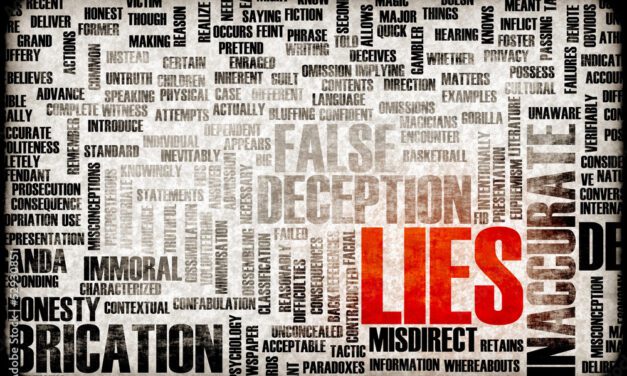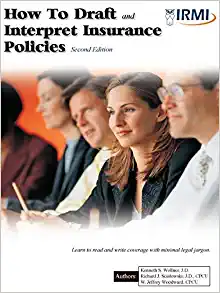LAWYERS & LIES: Part Four–On Negotiations
PROFESSIONAL ETHICAL RULES GOVERNING LAWYERS’ LYING, e.g., IN NEGOTIATIONS
1. “As negotiator, a lawyer seeks a result advantageous to the client but consistent with requirements of honest dealing with others.” (ABA, Preamble [2], Texas. Preamble [2][i].)
2. A lawyer may not knowingly counsel a client to or assist a client in committing a crime or fraud, although a lawyer may advise a client as to the probable consequences of such contemplated action. (A-1.2(d), T-1.02(c). Both systems of rules define the term “knowingly” the same way, but they define the word “fraud” slightly differently, although both definitions of their “fraud”-definitions involve the idea and the language of “purpose to deceive.”)
3. A lawyer shall reasonably consult with his/her client about the means by which the client’s objective may be achieved. This would include informing and explaining to the client what a lawyer cannot do as a result of controlling law, including the applicable ethical rules. (A-1.4(a)(2) and (4), T-1.02(f).)
4. A lawyer may disclose confidential information from or regarding the client when it is reasonable to accomplish one or more of the following: to prevent the client from committing a crime or fraud, to prevent rectify, or mitigate injury in furtherance of the lawyer’s services when the act or activity has already begun, to obtain legal advice, to avoid criminal or ethical charges against the lawyer, to deal with a lawsuit between the lawyer and client. (A-1.6(b)(2)-(5), T-1.05(C0((4)-(7).) The rules are worded somewhat differently and applications may differ a bit. The foregoing tried to capture both of them, but tends more toward the ABA rule.)I am tired of using the words “lawyer,” “attorney,” and “client” to summarize and paraphrase the rules. I will, therefore, switch to “L’ and “C.”
5. L shall (= must = is obligated to) withdraw from representing C, if L’s continued representation of C would result in L’s violating the Rules of Professional Conduct or some other law, e.g., the law forbidding fraud. (A-1.16(a)(1).)[ii]
6. L may withdraw if C persists in conduct which L has characterized to C as involving crime or fraud and has (at least thereby) advised not to perform or quite performing (A-1.16(b)(2)), or if L has advised C regarding the criminal or fraudulent character of his contemplated conduct, and C goes forward anyway (A-1.16(b)(3).) [For the purposes of this discussion Item #5 is vastly more significant than Item #6.]
7. L shall not knowingly “make a false statement of fact or law to a tribunal or fail to correct a false statement of material fact or law previously made to the tribunal by” L. (A-3.3(a)(1), T-3.03(a)(1) & 3,03(B). The A-rule and the T-rule are different when it comes to correcting past errors; the former covers corrections with respect to both fact and law, while the latter covers only facts.)
8. L shall not knowingly offer evidence L knows to be false, and if has done so, he will correct the error upon learning the truth. (A-3.3(a)(3), (T-3.03(a)(5)-(b).)
9. If L is representing C in an adjudicative proceeding, and L knows that C was, is, or intends to engage in criminal or fraudulent conduct related to the proceeding, then L “shall take reasonable remedial measures, including, if necessary, disclosure to the tribunal.” (A-3.3(b); the T-rules have no independent or equivalent or analog to 3.3 (b) in T-3.03(b).)
10. “In the course of representing [C, L] shall not knowingly: (a) make a false statement of a material fact or law to a third person; or (b) fail to disclose a material fact when disclosure is necessary to avoid assisting a criminal or fraudulent act by [C] unless disclosure is prohibited by Rule 1.6.” (A-4.1. T-4.01(a) is the same and A-4.1(a). [iii])
Comment [2] to the A-rule reads as follows: “Under generally accepted conventions in negotiation, certain types of statements ordinarily are not taken as statements of material fact. Estimates of price or value placed on the subject of a transaction and a party’s intentions as to an acceptable settlement of a claim are ordinarily in this category, and so is the existence of an undisclosed principal except where nondisclosure of the principal would constitute fraud.[iv]
11. If L1 knows that L2 has violated the applicable rules of professional conduct and if that violation “raises a substantial question about [L2]’s honesty, trustworthiness, or fitness as a lawyer in other respects, [L1} shall inform the appropriate [professional/disciplinary] authority. (A-8.3, T-8.03.)
12. It is professional misconduct, so no L shall violate the ethical rules or either induce or assist someone else to do so, nor shall L commit [T: any “serious”] criminal acts [or any at all] that reflect adversely upon L’s “honesty, trustworthiness, or fitness”; of “engage in conduct involving dishonesty, fraud, deceit or misrepresentations[.] (A-8.4(a)-(c), T-8.04(a)(1)-(3).)
Part One was published on July 17, 2014. Parts Two and Three were published on October 22, 2014.
[i] Citations will hereinafter be abbreviated by “A-“ for rules, etc., of the ABA, Model Rules of Professional Conduct, and “T-“ for the Texas Disciplinary Rules of Professional Conduct. All of the underlinings in this list are mine, and they emphasize fraud since that is more or less the focus of this presentation.
[ii] This rule is related to the “Misconduct” rules in Rule 8.4.
[iii] The T-rule is different when it comes to §(b). Here is how T reads: 4.04(b): “fail to disclose a material fact to a third person when disclosure is necessary to avoid making [L] a party to a criminal act or knowingly assisting a fraudulent act perpetrated by [C].” This is different from A-4.1(b): (1) the A-rule talks about “assisting” the T-rule talks about being a “party.” (2) The A-rule except disclosures prohibited by A-1.6, which prohibits the disclosure of lots of confidential information, whereas the T-rule contains no such exception.
Question: Why is law included in both sections (a) but left out of both sections (b)?
[iv] The T-Comment is almost the same. As to a party’s intention regarding settlement, the T-Comment #1 reads slightly different: “a party’s supposed intentions as to an acceptable settlement of a claim may be viewed merely as negotiating positions rather than as accurate representations of material fact.”
Read More





Recent Comments